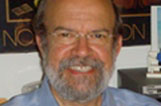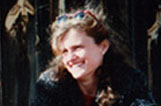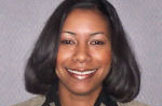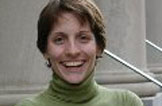"Let our mantra be, 'I care, and I'm willing to serve.'"
With these words Holly Sateia ‘82, interim vice president for Institutional Diversity and Equity, captured the passion for social change shown by four alumni and two student organizations honored at the Seventh Annual Martin Luther King Jr. Social Justice Awards ceremony, held February 1 in the Collis Student Center. The ceremony culminated a two-week program of campus events, titled “(In)Visible Identities: The King Legacy and the Class Divide,” organized by IDE in celebration of the legacy of Dr. King.
After a performance by the Ladies of Logos, the gospel group from the Dartmouth Logos Community, Elizabeth Mendoza '08, emcee for the evening, praised the award recipients for the way they "uniquely entwine social justice in their lives and professions."

Stephen J. Atwood, MD, '68, '70DMS received the Lester B. Granger '18 Award for Lifetime Achievement for his contributions to international public health as UNICEF's regional advisor for health and nutrition in East Asia and the Pacific. Among other assignments to urgent areas, he coordinated massive public health and recovery operations in Indonesia in the wake of the 2004 tsunami.

Allison Barlow, MPH, '86 received the Ongoing Commitment Award for outreach programs addressing suicide, HIV, teen pregnancy, and other issues in the Native American community that she heads up as deputy director for the Johns Hopkins Center for American Indian Health. She's also been an active board member with Baltimore Station, a recovery center for men who are addicted and homeless.
Two alumni received Emerging Leadership Awards:

Renai Rodney, JD, '99 has worked extensively in housing law at the Bluhm Legal Clinic and as an Equal Justice Works Fellow at the Legal Assistance Foundation of Metropolitan Chicago. She also co-founded Voices International, which runs a mentoring project for adolescent girls in Chicago as part of its mission to sustain the economic and social well-being of people of color through education, cultural awareness, and advocacy. Rodney works in the U.S. Attorney's Office for the Northern District of Illinois.
Anne Sosin '02 addresses women's rights, violence against women, and other human rights issues. as founder and director of Haiti Rights Vision. She's also conducted field research in that country on small-arms control with Oxfam UK and investigated human rights abuses with the Institute for Justice and Democracy.

The Dartmouth student organizations MEDLIFE and Dartmouth Ends Hunger were honored.
In a panel session moderated by Sateia, Atwood, Barlow, and Sosin (inclement weather prevented Rodney from attending) noted the influence their Dartmouth experience has had on their commitment to social justice. And Barlow cited the support she receives from Dartmouth alumni. "When I couldn't get from one stepping stone to the next, an alum has always helped me,” she said. "I've never had an alum say no."
Much of the discussion explored the local versus larger framework. Sosin urged the audience not to limit their energy to a problem's immediate obvious cause. "Link your efforts to the community," she advised, "but don't forget to address the larger questions, too."
In a frank look at the pros and cons of the government's role, Atwood said he has found that "more gets done by working with a government rather than working around it." He acknowledged that it's not always easy. “Progress is often about slogging it out, going back month after month to the same government official and saying, 'What's happening now?' The follow-up really matters."
“Like it or not, government has major influence,” said Barlow, “so we need to find change agents there and be willing to compromise sometimes in order to take a step forward."
She offered encouragement to social activists who despair at the sometimes slow pace of change.
"Our institutions are imperfect, our world is imperfect,” she said. “But stick with it. The great cathedrals of Europe weren't built all at once. One generation started them, another came along and laid some more bricks, the next generation laid more, until those amazing cathedrals were finally finished.
“It's the same with social change,” she continued. “Each of us lays a few bricks, the generations that follow us will lay some more, and that's how the world will finally become as it should be."
